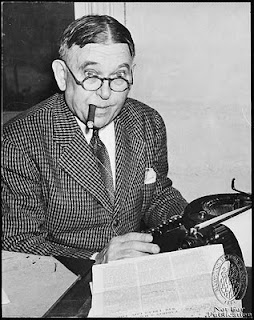The View from Afar
Writings by retired newspaper publisher Stephen Waters

9. Social Studies: The battle for individuals in society
Stephen Waters August 27, 2015
[Article 9 of 10: Previous articles teased out the shortcomings of the Social Studies Frameworks. This article examines why.]
If they had tried, creators of the Social Studies Frameworks could not have developed a program less suited to teach students history, economics, and political theory. But, then, their goal appears to replace individuality in culture with a communitarian view. Given a choice between regimentation and initiative they chose uniformity. Uniformity begets conformity. Conformity begets enforced equality of result, never successful over the long term.
The frameworks profess “the importance of educating students who are committed to the ideas and values of democracy” [1] but they never offer a rationale why to commit to democracy. Students are not born committed to democracy and the frameworks do not encourage commitment. The frameworks designers don’t care because, different than most of us, they see democracy as a tool to mold citizens their way. They quote, “As Thomas Jefferson, Horace Mann, John Dewey and other great educators understood, public schools do not serve a public so much as create a public. [Cite.] The goal of schooling, therefore, is not merely preparation for citizenship, but citizenship itself; to equip a citizenry with the knowledge, skills, and dispositions needed for active and engaged civic life.” [2]
They did not choose to educate individuals to decide how to act responsibly. They chose to produce “good citizens” according to their definition of good. As a result, they drill in so much that contains so little worth knowing.
The difference passes by most citizens because the authors redefine words for their benefit, not yours. Words, as author William Gass said, are how we bludgeon people into food. [3]
Frameworks designers don’t have to admit their intent. One political theorist called such educationists comprachicos-child-buyers: an allusion to those who, for their own ends, manipulate the minds of children.
Educationists embrace John Dewey’s model of learning, his “learn by doing” approach that promoted real world experiences, not just reading and drill. Their “critical thinking” distills out the process of analytical thinking. Dogmatic lessons encumbered schools with a restrictive set of blinders. Social studies has been an accident in the making since Dewey became infatuated with communal education before it was exposed as a vehicle of the state. Dewey did not coin the title Social Studies, but he certainly believed in social transformation. The frameworks dovetail with international manipulation pursued because principles necessary for society are not as attractive as central control.
What worked in classical education became passé because it was accused of favoring those of higher socioeconomic class. To replace it, designers promote group work and cooperative learning rather than nudge students to think for themselves. They school the clichés of social responsibility and democracy even if strong individual thinking is the more effective way to deduce what society is, what responsibility one has to society, and what validates processes in democracy.
Their oversimplified version of democracy is seeded with an artificial turf of convenient incomplete, politically correct representations. For them, placards speak truth, even when they don’t. For them, some people are more equal than others. For them, ignorance is knowledge. For them, what you know is what you feel and feelings trump good sense. They ply the scientism of select statistics. They invoke the poetry of slogans to feel but not to think. Theirs is the audacity of convictions.
Post-modern and utopian, they gum up minds with viral ideas that know no national borders. They advocate the paternalistic nudge not to understand but to agree. Their hubris is to believe that while people should be free to make their own decisions, “choice architects” like the government can help people make those choices “better.” [4] They presume what they believe is better than history. Their error plays out on a grand scale.
Centralized control is the warning they exceeded their charter. They do not value what they cannot understand. Words are weaponry they use to instill a pernicious misunderstanding of the value of society and negate the individual. Logic cannot dent their convictions, so it falls to us to laugh at them in public. Once exposed, every individual can judge. Such is real democracy. /p>
[The next article, 10. Social Studies: Social transformation is not education, wraps up that the Social Studies Frameworks were designed to school social transformation rather than educate students.] <>/p>
--
[1] http://www.socialstudies.org/ standards/introduction
[2] http://www.socialstudies.org/ positions/revitalizing_civic_learning
[3] William Gass. Gertrude Stein and the Geography of the Sentence.
[4] Sunstein, Cass. Former head of Barack Obama’s Office of Management and Budget’s Office of Information and Regulatory Affairs.

Stephen B. Waters
In early 2021, with 46 years in the business, I retired as publisher of the Rome (NY) Daily Sentinel
After five generations of family ownership, despite an unsettled economy, we keep on. We understand that although we may own the newspaper, we hold it in stewardship for the community.
Across my career, so many other small newspapers were purchased by media chains, large newspapers sold their integrity, and broadcast news outfits fell back on superficial entertainment.
They put journalism in this country at risk. The best antidote is for individual readers to arm themselves to recognize the danger to their community, culture, and society itself.
Index
-
 sbwTweet
sbwTweet
Mostly Links and Retweets -
 Essays
Essays
Writings across time -
 Editorials and columns
Editorials and columns
For the newspaper -
 Presentations
Presentations
Community discourse -
 Books
Books
Published and available -
 Audiobooks
Audiobooks
Readings and more